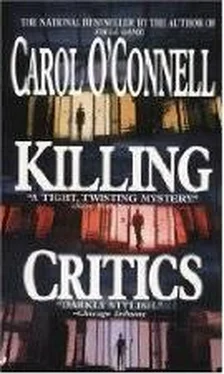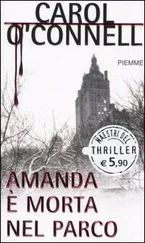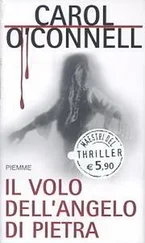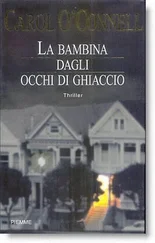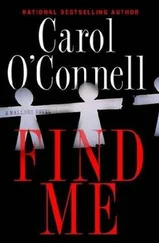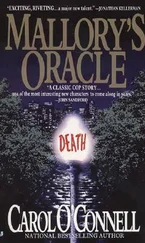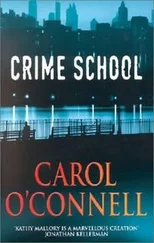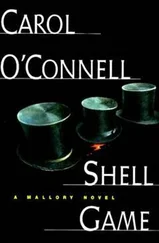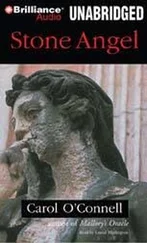Carol O’Connell - Killing Critics
Здесь есть возможность читать онлайн «Carol O’Connell - Killing Critics» весь текст электронной книги совершенно бесплатно (целиком полную версию без сокращений). В некоторых случаях можно слушать аудио, скачать через торрент в формате fb2 и присутствует краткое содержание. Жанр: Триллер, на английском языке. Описание произведения, (предисловие) а так же отзывы посетителей доступны на портале библиотеки ЛибКат.
- Название:Killing Critics
- Автор:
- Жанр:
- Год:неизвестен
- ISBN:нет данных
- Рейтинг книги:3 / 5. Голосов: 1
-
Избранное:Добавить в избранное
- Отзывы:
-
Ваша оценка:
- 60
- 1
- 2
- 3
- 4
- 5
Killing Critics: краткое содержание, описание и аннотация
Предлагаем к чтению аннотацию, описание, краткое содержание или предисловие (зависит от того, что написал сам автор книги «Killing Critics»). Если вы не нашли необходимую информацию о книге — напишите в комментариях, мы постараемся отыскать её.
Killing Critics — читать онлайн бесплатно полную книгу (весь текст) целиком
Ниже представлен текст книги, разбитый по страницам. Система сохранения места последней прочитанной страницы, позволяет с удобством читать онлайн бесплатно книгу «Killing Critics», без необходимости каждый раз заново искать на чём Вы остановились. Поставьте закладку, и сможете в любой момент перейти на страницу, на которой закончили чтение.
Интервал:
Закладка:
Applause broke out like sudden gunfire. This was wholly inappropriate behavior for the mass, but Father Brenner never noticed, never saw the rows of clapping hands and the rapturous faces. He looked only to Kathy as the sound of applause thundered all around them.
She nodded to him, and in that simple gesture, she managed to convey that a debt had been paid.
He hoped she would stay to talk with him awhile, but instead she unplugged the microphone from her recording device and left the pew. Apparently, she had more pressing business elsewhere. She moved quickly toward the door, and he wondered if he would ever see her again. Would there be no more calls in the dead of night?
She slowed her steps at the altar of Saint Jude and pocketed a few candles in passing.
Mallory opened the door to Riker’s apartment, and flicked on the wall switch. An overhead light illuminated the whole ungodly mess. It was much worse than she had remembered. Cockroaches fled to the dark cover of the take-out cartons and into the mouths of discarded beer bottles. The crumbs embedded in the rug under her feet gave new meaning to the cliché of a floor you could eat off of. Some of the grazing roaches seemed too bloated to run very fast. There was no single uncontaminated place to set down her duffel bag.
With the risk of a hotel room in mind, she walked to the telephone on the far wall. Her hand hovered over it for a moment, hesitating to touch the receiver, which bore every fingerprint from the day it had been installed.
A half hour later, she was back from the corner bodega with a bag of supplies-cleaning solvents for window glass and mirrors, for porcelain fixtures and metal fixtures, linoleum and wood. She set the bag on the kitchen countertop and pulled out a roll of paper towels, a new sponge for the mop, a pair of plastic gloves, and an aerosol can with a label that promised to kill even saddle-worthy mutations of roaches.
Her face was grim as she gathered up her arsenal. Cleaning house was not something she usually objected to. Her own condominium was spotless, dustless, without blemish of any kind, and she was near fanatical in keeping it that way. On the Saturday mornings of her childhood, she had helped Helen in the ritual of cleaning. But Helen, the world’s champion homemaker, had always begun with a perfectly clean house.
It was late when Mallory returned from the laundromat. She put down the bag of clean towels and sheets, what must be several months’ worth of them. Leaning back against the door, she brushed a damp tendril of curls from her face. She was tired, but if she sat down, she would lose momentum.
She dragged her bucket and mop to the bathroom, the last room to clean. And there she was confronted by the plastic Jesus glowing in the dark. She pulled the night-light out of its electrical socket and tossed it into the hamper, where she would not have to look at it.
A white-haired man stood alone in the plaza. Behind him, the door of the wooden fencing lay in splintered pieces. He made one slow circuit of the plaza, beholding the ghostly white tarpaulins covering every bench, blanketing the fountain, and extending in a pale virus up the walls of the building facade.
This was Gregor Gilette, whose work one critic had described as almost like a song. Critics had always floundered for the adjectives. They wanted very much to call him classical, and every instinct sought this word. It was the classic lines of nature which made the inhabitants of Gilette’s buildings feel so perfectly in accord with their environs, in the same way that classical music kept to the rhythm of the human heart. His work never recalled the classic forms of European architecture, but the motion of the river, majestic heights that eagles might inhabit, and the feminine elements of a graceful nude. This was Gilette.
He had been elated when he finally received the portfolio of photographs. The plaza was about life, and it was good that there had been people to fill all the spaces he had lovingly created for them, as though they had not been strangers to him, but invited guests. Such was his feeling for all his creations. But this building was most special. He would end his career at the height of his powers with this, his greatest piece of art.
He also approved of Jamie Quinn, who had visited his house tonight. Had he been planning ever to create another work, he might have stolen a line of elegance from Jamie’s face and another from the body and then incorporated the man into something of marble. Only marble would suit the critic’s cool, smooth, graceful exterior. There were no cracks or seams through which the uninvited might intrude on him.
An hour ago, Gilette had listened as his brother-in-law explained the purpose for his visit, as he described the Public Works Committee’s choice of art for the plaza. Gilette had listened, but he had not believed. What kind of an animal would do such a thing?
Emma Sue Hollaran. A dumb, slow-witted animal, Jamie Quinn had gently explained. The artist was Gillian, the vandal.
Gilette had come to the plaza to see for himself. Heavily veined hands reached out for the first tarpaulin and ripped it from the mooring pins with ferocity, and then the next and the next, until the floor of the plaza was covered with the white canvas. He stood by the fountain at the center of the plaza, taking it all in. And now he believed.
A fifteen-year-old boy, with the aimless walk of a vagrant, was making his way down the sidewalk, past the wooden fencing, adjusting the straps of his knapsack as he walked. The sack was heavy with the weight of his best pair of jeans and all the rest of his possessions.
When he came to the small pile of boards on the sidewalk, he turned to see the splintered opening in the fence. He stepped lightly over the remnants of the wooden door and slipped quietly through the hole, wondering if this might be a good place to spend the night, perhaps to sleep through until morning without the rude awakening of a cop kicking him in the side to move him along. He was sick, flesh hanging on his bones, and he could not afford another injury. It took so long to heal now.
Once he was through the fence, his eyes became accustomed to the poor light leaking through the hole, and the pale light of the moon overhead. He moved cautiously under the high marble arch and into the plaza.
Someone else was there ahead of him. It was an old man with a bowed back. The boy held his breath as the old man settled wearily to a bench that had been cracked and smeared with paint.
Now the boy’s gaze traveled up the length of the walls to see the crude paintings of muggers and subway trains, and the big red blob in the center of it. Painted across the stone face of the building were the words “Welcome to the Big Apple.”
The fountain was also smeared with paint and gouged with something that had left tracks of rust in the wounds. The vandal had gone too far. A delicate arm of the fountain had been broken off and lay in the water like a severed limb.
Again, the boy read the writing on the wall. “The Big Apple.” That was what his mother called New York City, the Big Apple. And what he saw in this wreckage was so New York. It was his mother’s building one block from a soup kitchen. It was the dark man on the corner who sang, “Come kiddy come. I got crack and I got smoke, and come kiddy come kiddy come.” It was the flowers that his mother could never put in the first-floor window box without seeing them broken-stalked and stolen by the day’s end.
He could not get out of this town fast enough.
The old man was rising unsteadily to his feet. The boy, sensing some remainder of authority here, melted back into the dark of the broken ash trees as the old man quit the plaza.
The boy walked over to the pile of rubble and old paint cans at the base of the wall. He knelt down and selected a can of red. He made a tentative squirt in the air, and then he froze.
Читать дальшеИнтервал:
Закладка:
Похожие книги на «Killing Critics»
Представляем Вашему вниманию похожие книги на «Killing Critics» списком для выбора. Мы отобрали схожую по названию и смыслу литературу в надежде предоставить читателям больше вариантов отыскать новые, интересные, ещё непрочитанные произведения.
Обсуждение, отзывы о книге «Killing Critics» и просто собственные мнения читателей. Оставьте ваши комментарии, напишите, что Вы думаете о произведении, его смысле или главных героях. Укажите что конкретно понравилось, а что нет, и почему Вы так считаете.
